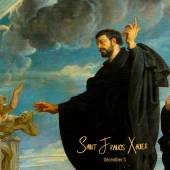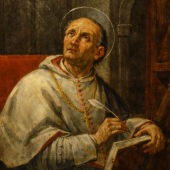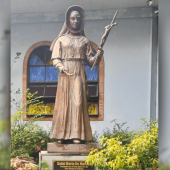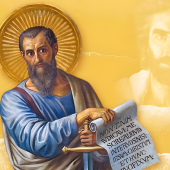St. Ignatius of Loyola: A Spiritual Guide for Every Generation
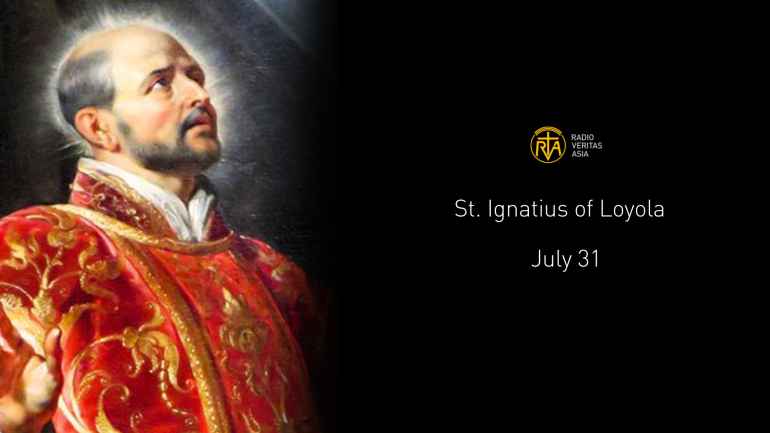
On July 31, the Church celebrates the feast of St. Ignatius of Loyola, founder of the Society of Jesus. He is especially known for the Spiritual Exercises, a spiritual masterpiece that has shaped generations of priests, religious, and laypeople in the art of discernment, helping them find God in all things and live with deeper purpose.
Born in 1491, Iñigo de Loyola was a worldly courtier and soldier who nearly lost his life in a battle at Pamplona, defending Spanish territory against the French. His conversion began during that fateful battle in May 1521, when a cannonball struck his legs. Though gravely wounded, he was spared by the enemy and sent home to recover. Under the care of his family, he underwent a series of painful procedures, done without anesthesia, to reset his legs. Still dissatisfied with the results, he requested further surgery to remove a protruding bone, sacrificing comfort for aesthetics. The result left him with one leg shorter than the other, ending his dream of becoming a charming courtier, admired by women and envied by men.
During convalescence, Ignatius asked for books of chivalry and romance, but his caregivers gave him instead The Life of Christ and stories of the saints. These readings stirred in him deep interior movements, consolation when imagining imitating the saints, and desolation when daydreaming about worldly glory. A new spiritual awakening had begun.
After his recovery, Ignatius resolved to make a pilgrimage to Jerusalem. On the way, he stopped at the Benedictine Abbey of Montserrat, where he laid down his sword and dagger before an image of the Blessed Virgin and spent long hours in prayer. With no clear direction the next day, a kind woman pointed him toward the nearby town of Manresa. There, in a cave, Ignatius entered a period of intense spiritual struggle, marked by prayer, penance, and scruples. He was haunted by questions: Had he confessed every sin? Had he omitted anything?
According to his biography, it took four days for Ignatius to fully unburden his soul. He was a man of passion, once combative, a gambler, and fond of courtly life, suggesting he had broken nearly all ten commandments. But determined to purify himself and draw near to God, he confessed everything without hesitation.
It was during his 10-month stay in Manresa, while also tending to the sick in a local hospice, that his spiritual masterpiece, the Spiritual Exercises, began to take shape.
In the acclaimed 10-part video documentary Pivotal Players: 12 Heroes Who Shaped the Church and Changed the World, American Bishop Robert Barron, the founder of the Word on Fire Media Apostolate, describes the Spiritual Exercises as “a radical and deeply challenging document which grew out of the saint’s intensity and concentration in Manresa.” He points out that the Exercises are not a theological treatise, but a practical manual designed to guide both spiritual directors and retreatants through a process of inner transformation. Since Ignatius continued refining the text after Manresa, Bishop Barron notes, it “reflects a good deal of practical wisdom and spiritual prudence.”
At the heart of the Exercises, he adds, is orthodoxy, right praise. This interior ordering begins with detachment: a willingness to let go of created things so as to be fully available to God. “The well-ordered life centers around the worship of God, and once that idea is clear, everything else falls into place,” Bishop Barron explains.
Ultimately, Ignatius sought to form soldiers, men and women willing and ready to follow the Divine Command, wherever it may lead.
The Spiritual Exercises are a summons to take seriously the universal call to holiness. They invite the faithful to union with God and to the daring ambition of becoming great saints.
St. Ignatius of Loyola was canonized by Pope Gregory XV on March 12, 1622, alongside his friend and fellow missionary, St. Francis Xavier.
Radio Veritas Asia (RVA), a media platform of the Catholic Church, aims to share Christ. RVA started in 1969 as a continental Catholic radio station to serve Asian countries in their respective local language, thus earning the tag “the Voice of Asian Christianity.” Responding to the emerging context, RVA embraced media platforms to connect with the global Asian audience via its 21 language websites and various social media platforms.











